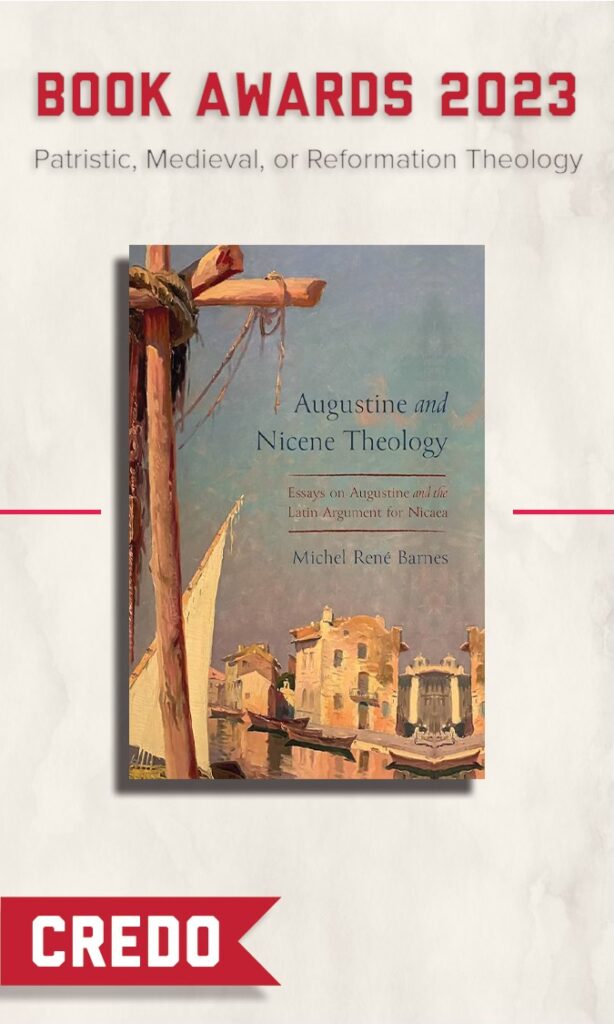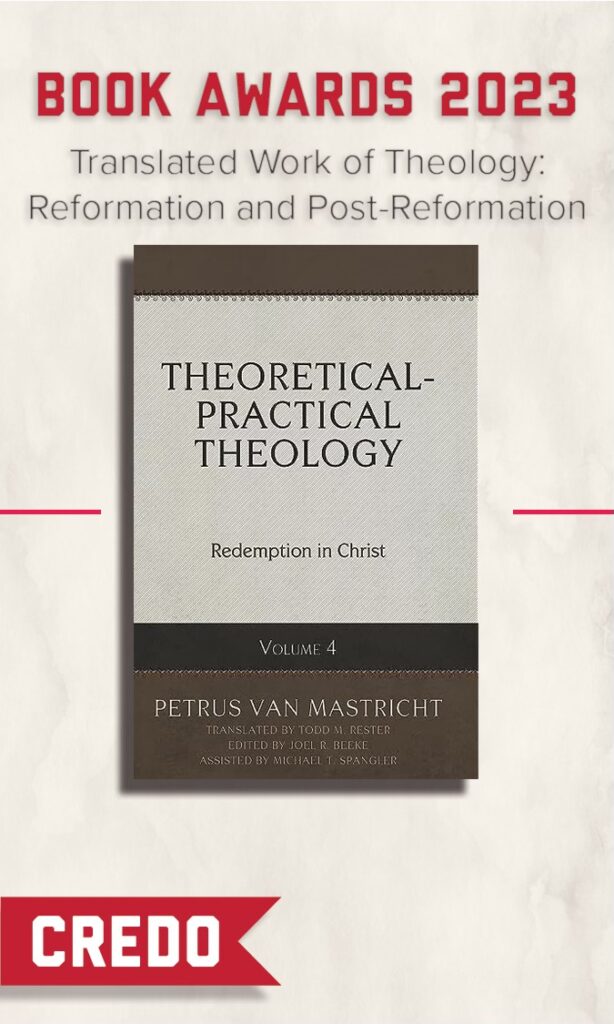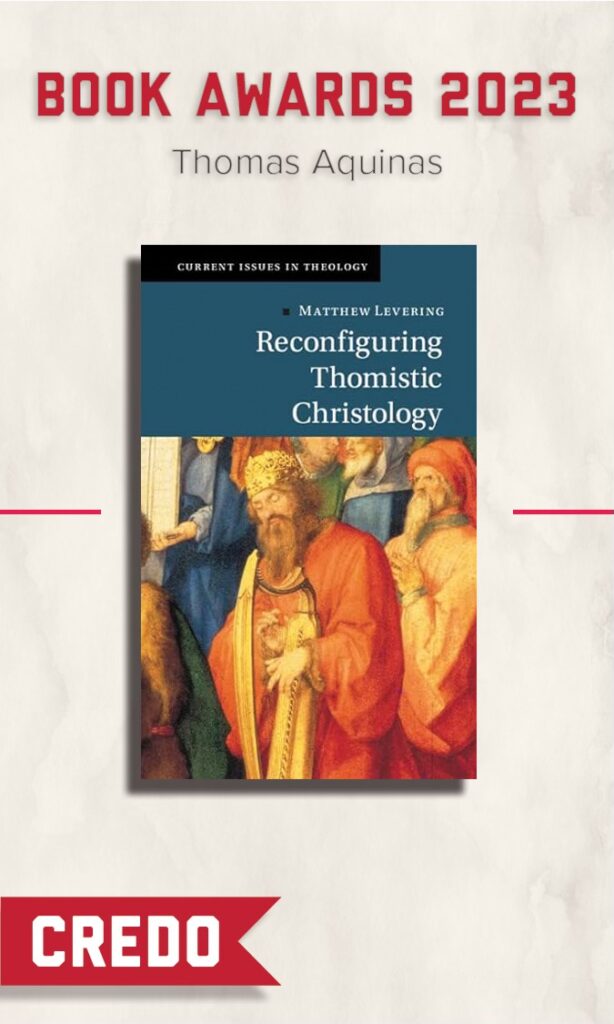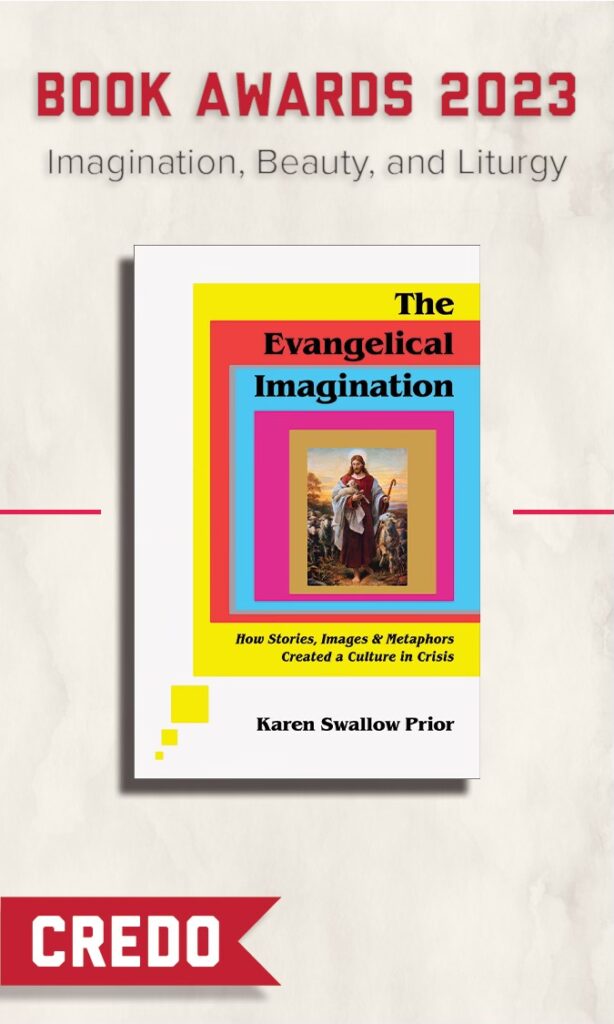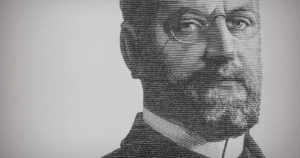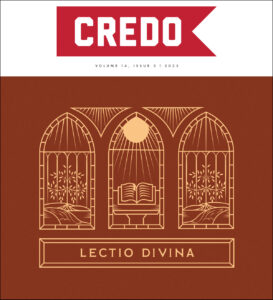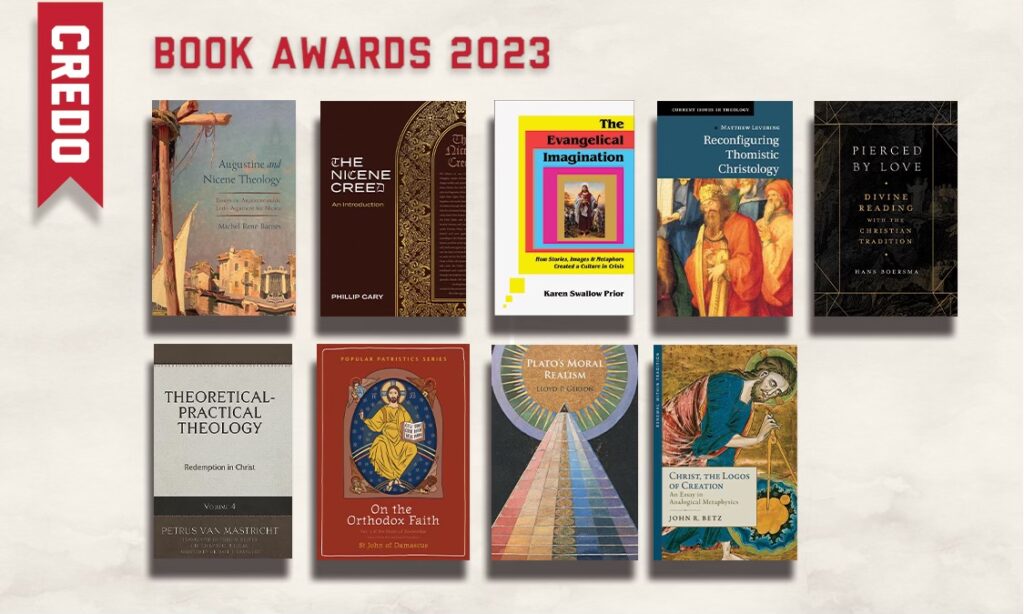
The Credo Magazine Book Awards move past general categories in Christianity at large to give attention and praise to the best works in theology today. But not just any theology will do. In the spirit of Credo itself, these accolades go to those authors who model and advance the retrieval of classical Christianity for the sake of renewal today, and not only renewal in the academy but in the church.
Each year a new set of judges will be chosen who are theologians themselves, experts in their field, and practitioners of theology in the church and academy. This year’s judges include:
- J.V. Fesko, Harriet Barbour Professor of Systematic and Historical Theology Reformed Theological Seminary
- Matthew Barrett, Professor of Christian theology, Midwestern Baptist Theological Seminary
- Sam Parkison, Associate Director of Theological Studies and Director of the Abu Dhabi Extension Site, Gulf Theological Seminary
- Craig Carter, Research Professor, Tyndale University
These judges have consulted each publishing house’s books in 2023 and chosen several “finalists.” But among these finalists one book has been chosen in each category that exemplifies the mission of Credo. The judges have written a short explanation for why they have selected the winner in each category.
Systematic Theology and Dogmatics
Christ, the Logos of Creation: An Essay in Analogical Metaphysics. John R. Betz. Emmaus. [affiliate link]
In this excellent book, John R. Betz demonstrates how the analogia entis provides many resources for theological and philosophical reflection. Betz is one of the best voices out there to show that a-metaphysical theology is a contradiction in terms. Metaphysics and theology go together. While Betz would benefit from a wider engagement with the Protestant tradition, and while he at times may sacrifice sounder philosophical articulations for the sake of embracing more of the Roman Catholic tradition than is advisable (as when he offers an overly sympathetic reading of Hans Urs von Balthasar’s Trinitarian ketoniticm), Betz’s work overall is a masterful exercise in philosophical and theological and theological contemplation.
Finalists
Lord Jesus Christ. New Studies in Dogmatics. Daniel Treier. Zondervan Academic.
The New Cambridge Companion to Christian Doctrine. Edited by Michael Allen. Cambridge University Press.
The Lord Jesus Christ: the Biblical Doctrine of the Person and Work of Christ. Brandon D. Crowe. Lexham Press.
The Holy Spirit: An Introduction. Fred Sanders. Crossway.
Theological retrieval
Pierced by Love: Divine Reading with the Christian Tradition. Hans Boersma. Lexham. [affiliate link]
Boersma provides helpful reflections on what it means to read the Bible with the goal of being transformed by the Word of God. He shows that lectio divina is not something foreign to any devout interpreter or preacher of the Bible, but rather what spiritually serious Christians always have always done.
Finalists
Divine Speech in Human Words: Thomistic Engagements with Scripture. By Emmanuel Durand. Edited by Matthew K. Minerd. CUA.
The Nicene Creed: An Introduction. By Phillip Cary. Lexham.
Classical Theism: New Essays on the Metaphysics of God. Edited by Jonathan Fuqua and Robert C. Koons. Routledge.
The End of Interpretation: Reclaiming the Priority of Ecclesial Exegesis. By R. R. Reno. Baker Academic.
Patristic, Medieval, and Reformation Theology
Augustine and Nicene Theology: Essays on Augustine and the Latin Argument for Nicaea. Michel René Barnes. Cascade. [affiliate link]
These essays are the fruit of a lifetime of Augustine scholarship and have been highly influential in correcting the widespread tendency in the twentieth century to deprecate the Latin or Western tradition of Trinitarian thought stemming from Augustine. Barnes shows the essential agreement between the fourth century Greek fathers and Augustine on pro-Nicene theology.
Finalists
Selected Essays: Studies in Patristics. Volume 1. Volume 2. By Andrew Louth; Edited by Prof Lewis Ayres and Prof John Behr. Oxford University Press.
Deification in the Latin Patristic Tradition. Edited by Jared Ortiz. CUA.
Jesus through Medieval Eyes. Grace Hamman. Zondervan.
Reading Aristotle with Thomas Aquinas: His Commentaries on Aristotle’s Major Works. By Leo Elders. Edited by Jorgen Vijgen. CUA.
The Oxford Handbook of the Bible and the Reformation. Edited by Jennifer Powell McNutt and Herman J. Selderhuis. OUP.
To the Judicious and Impartial Reader: Baptist Symbolics Volume 2: A Contextual-Historical Exposition of the Second London Baptist Confession of Faith. By James Renihan. Founders Press.
Natural Theology
Plato’s Moral Realism. Lloyd Gerson. Cambridge University Press. [affiliate link]
Lloyd Gerson is one of today’s foremost interpreters of Plato and the Platonic tradition that is central to the Western philosophical tradition and is crucially important for Christian theology and ethics. Here he explains how Plato’s Form of the Good is the basis of his moral realism.
Finalists
Christian Ethics, Vol. 1: The Shining Human Creature; Vol. 2: Made Like the Maker. Modernized by Colin Redemer. Davenant Press.
The Rise of Christian Theology and the End of Ancient Metaphysics: Patristic Philosophy from the Cappadocian Fathers to John of Damascus. By Johannes Zachhuber. OUP.
Translated Work of Theology—Patristic and Medieval
On the Orthodox Faith. Popular Patristics Series. John of Damascus. Translated by Norman Russell. St. Vladimir’s Seminary Press. [affiliate link]
This recent translation of John of Damascus’s On the Orthodox Faith is a timely and welcomed one. In a time when modern theologians attempt novel and creative articulations of theology proper and Christology, Normal Russell’s re-presentation of the great Eastern father’s seminal work shows how very often the very best answers to our pressing questions have already been given. Readers would do well to receive this gift from Christianity’s Great Tradition with gratitude.
Finalists
On the Human Image of God. By Gregory of Nyssa. Edited and Translated by John Behr. Oxford University Press.
Homilies on Psalms 36-38. By Origen, Translated by Michael Heintz. CUA.
Biblia cum Glossa Ordinaria – Genesis. The Great Medieval Commentary on Sacred Scripture. Emmaus.
Translated Work of theology—Reformation and Post-Reformation
Redemption in Christ. Volume 4 of Theoretical-Practical Theology. Petrus Van Mastricht, translated by Todd M. Rester, edited by Joel Beeke. Reformation Heritage Books. [affiliate link]
The recent retrieval of Post-Reformation Scholastics is a sign of great promise in the Reformed and evangelical world today. Reformation Heritage’s publication of Mastricht’s fourth volume in his magisterial Theoretical-Practical Theology is a shining example of why such an endeavor is so fruitful. With precision, insight, rigor, and pastoral warmth, Mastricht’s instructions on Christ’s redemption are among the very best in the Protestant tradition, and pastors and scholars and students alike would do well to heed him.
Finalists
The Exposition of 1 John and An Exposition upon Matthew V-VII. By William Tyndale. Edited by J. Christopher Warner. CUA.
Proverbs, Ecclesiastes, Song of Songs. Reformation Commentary on Scripture. Translated and edited by David Fink. IVP Academic.
The Thomistic Response to the Nouvelle Théologie: Concerning the Truth of Dogma and the Nature of Theology. Edited by Jon Kirwan. Translated by Matthew Minerd. CUA.
Thomas Aquinas
Reconfiguring Thomistic Christology. Matthew Levering. Cambridge University Press. [affiliate link]
A true contribution. In the last century biblical scholarship has been fixated on the historical Jesus. For notable scholars like E.P. Sanders that quest means dismissing typology as historically anachronistic and arbitrary. True scholarship, so we are told, puts theology (which buttresses typology) to the side to do the real work of history, digging through the layers of scripture to excavate Jesus of Nazareth. Yet these modern precommitments are only true if one assumes “a priori that Jesus is not the incarnate Lord or that history has no providential unity”, responds Matthew Levering. In a breakthrough book, Levering demonstrates that Christ is the New Adam, New Isaac, New Moses, New Joshua, and New David, but he does so by resurrecting the biblical scholarship of Thomas Aquinas. Large swaths of biblical scholarship have ignored Thomas on typology, failing to consider Thomas’s argument for Jesus as the “eschatological fulfillment of these types.” And, with no little irony, contemporary Thomists have too! In a brilliant work, Levering brings biblical scholarship and Thomism to the same table and says it’s high time both fields listen and benefit from Thomas’s typology, a typology that stems from his Christology. If Levering is right, then expanding on Thomas’s Christological typologies today will equip biblical theologians with the ontology they need to defend typology in the first place. Defying expectations, Levering invites all traditions–including the Reformed tradition–to retrieve Thomism so that together we can answer the modern challenges that have crippled biblical scholarship.
Finalists
The New Cambridge Companion to Aquinas. Edited by Eleonore Stump and Thomas Joseph White. Cambridge University Press.
Divine Speech in Human Words: Thomistic Engagements with Scripture. By Emmanuel Durand. Edited by Matthew K. Minerd. CUA.
Theological Imagination, Beauty, and Liturgy
The Evangelical Imagination: How Stories, Images, and Metaphors Created a Culture in Crisis. Karen Swallow Prior. Brazos. [affiliate link]
Dr. Prior’s The Evangelical Imagination presents a CAT-scan of the contemporary Evangelical church that explores the texts, metaphors, and ideas that have shaped it. Anyone who wants a better understanding of our present theological moment will find this book an able and informative guide.
Finalists
Feasts for the Kingdom: Sermons for the Liturgical Year. By Khaled Anatolios. Eerdmans.
Epiphany: The Season of Glory. By Fleming Rutledge. IVP.
O Come, O Come, Emmanuel. By David Gibson. Crossway.
Credo Book of the Year
 The Credo Book of the Year award goes to a book that not only models theology but does so for sake of renewal in the church.
The Credo Book of the Year award goes to a book that not only models theology but does so for sake of renewal in the church.
The Nicene Creed: An Introduction. By Phillip Cary. Lexham. [affiliate link]
For over a thousand years the church across the globe confessed the Nicene Creed together. To be a Christian meant worshiping the Trinity of the scriptures, a Trinity our church fathers described in the Creed with orthodox clarity over against the threat of heresy. How strange—indeed, how sad—to admit that many (most?) churches today have never read or confessed the Nicene Creed. Some have never even heard of the Nicene Creed. Phillip Cary’s book is a harvest in a time of famine. With a precision that does not forfeit accessibility, Cary not only explains each word in the Nicene Creed, but he summons the church today to link arms with brothers and sisters of yesterday to confess a Trinity apart from which we have no Christianity.


